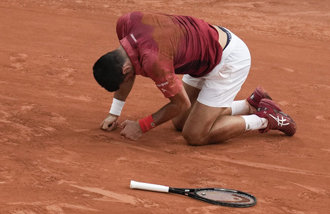Kim Jong Un's pursuit of military goals in the face of food shortages
Kim Jong Un's pursuit of military goals in the face of food shortages
Posted September. 23, 2023 08:04,
Updated September. 23, 2023 08:04
The eventful trip of North Korean leader Kim Jong Un to Russia has concluded. He embarked on a 2,700km journey aboard his private train to reach the Russian border, and within Russia itself, he covered an impressive 4,200km. When factoring in the return journey to Pyongyang, this arduous voyage spanned more than 10,000km, lasting for 10 days and 9 nights. A government representative remarked, "It appears that Kim Jong-un successfully executed his planned itinerary, even managing to rest on the train," and added “It seems urgent to reevaluate Kim Jong-un’s health, which is said to be suffering from adult-onset medical conditions.”
Immediately preceding this Russia visit, South Korean and U.S. intelligence agencies were closely monitoring the potential for military collaboration between North Korea and Russia. Given North Korea's need for Russia's advanced technology, such as nuclear submarines and satellites, and Russia's urgent requirement for support in conventional weaponry, including artillery shells available in North Korea, there were apprehensions that this could mark the commencement of military cooperation between North Korea and Russia.
Seemingly reveling in these concerns, Kim Jong Un deliberately selected destinations that conspicuously evoked military cooperation themes. Right after the summit held at the Vostochny Cosmodrome, he proceeded to the industrial city of Komsomolsk-Naamure, where he toured a fighter jet factory. Additionally, he conducted inspections at the Knevich Military Airfield and the Vladivostok Pacific Fleet. In contrast to his first visit to Russia in 2019, when he was accompanied by a significant contingent of economic and diplomatic figures, on this occasion, Kim Jong-un was joined by a series of high-ranking military officials, a development publicly disclosed by North Korean media. Going a step further, North Korea's state-controlled media even broadcasted a documentary detailing Kim Jong-un's visit to Russia.
The details of this summit between North Korea and Russia were held under tight wraps. Nevertheless, it appears that North Korea's provision of weaponry had been ongoing prior to this visit. Several months ago, a significant quantity of arms from North Korea made its way into Russia, and there have been indications that the two nations recently formalized an agreement and engaged in earnest exchanges of weaponry.
North Korea's provision of arms is causing a ripple effect in the political landscape of Ukraine and may trigger a robust international response, potentially involving the United States, against both North Korea and Russia. However, from our vantage point, the prospect of North Korea receiving support from Russia is even more disconcerting. Even a minor assistance from Russia could empower North Korea to swiftly deploy reconnaissance satellites, which have previously encountered setbacks this year alone. This support could enable North Korea to secure critical technologies for intercontinental ballistic missiles (ICBMs), including re-entry systems and multiple warheads, and markedly expedite the development timeline for nuclear-powered submarines.
The precise details surrounding Russia's transmission of weapons manuals to North Korea have not been disclosed at this time. Some interpretations suggest that Putin's overt invitation to Kim was a gesture of gratitude for the artillery shells supplied by North Korea. However, an official familiar with the Russian situation offered a cautious perspective, stating, "While it's possible that the exchange involved technology related to reconnaissance satellites, it's unlikely that Russia would readily share sensitive technology with North Korea." This underscores the complex and sensitive nature of military and technological exchanges between the two nations.
Effective management of our government's relationship with Russia has now become more crucial than ever. While we must collaborate with the international community, including the United States, to exert pressure on Russia, we also need to carefully time our own diplomatic efforts, which may involve activating high-level channels. A prominent government official emphasized, "The critical task at hand is striking the right balance between applying pressure and diplomatic engagement." This is imperative because neglecting Putin's actions could lead to the unsettling scenario of him handing the metaphorical golden key to Kim Jong Un without restraint.
Headline News
- 22nd National Assembly begins amid boycott by People Power Party
- S. Korea records per-capita GNI of 36,000 dollars, surpassing Japan
- N. Korea pulls railway sleepers on Donghae Line
- Act-Geo founder Dr. Abreu to visit Korea for press conference
- Benefactor donates 10 billion won for Korea University’s Sejong campus







